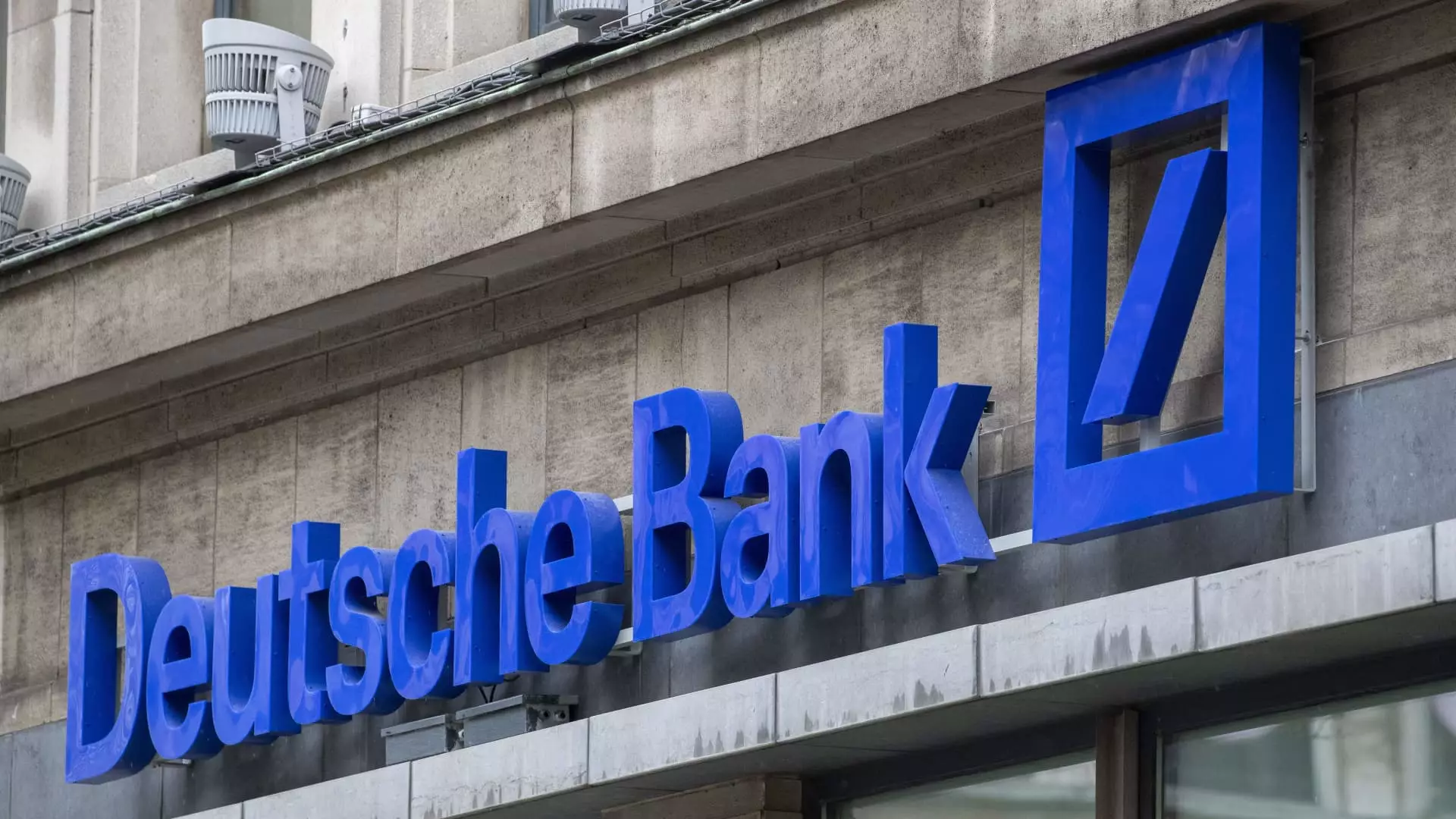Deutsche Bank’s latest financial performance provides a glimmer of hope, yet it also exposes the underlying fragility within one of Europe’s most influential financial institutions. The bank exceeded expectations with a second-quarter net profit of 1.485 billion euros, a significant turnaround from last year’s loss. This leap forward suggests a degree of resilience—especially given the turbulent economic environment—and indicates that Deutsche Bank remains capable of navigating headwinds, at least temporarily. However, beneath these bright spots lies a complex tapestry of mixed results, strategic recalibrations, and geopolitical headwinds that threaten its long-term stability.
The bank’s ability to meet its full-year targets, as confidently stated by CEO Christian Sewing, underscores a management team keen on projecting optimism. But the question remains: Is this performance a testament to genuine strength or merely a product of temporary factors? Revenues at 7.8 billion euros aligned closely with analyst forecasts, yet the core investment banking unit reported only a modest 3% growth, and certain divisions suffered notable declines. The duality of these results reflects an institution that is stabilizing but still wrestling with fundamental structural issues.
Uneven Waters: Investment Banking Under Pressure
While Deutsche Bank’s reputation as a global investment powerhouse is well-known, its recent performance reveals cracks in its armor. The bank’s investment banking division experienced mixed fortunes—an 11% revenue increase driven by fixed income and foreign exchange volatility, but a sharp 29% decline in origination and advisory services. This dichotomy signals a fragile market environment that favors certain sectors while aversely impacting others.
The decline in advisory revenues, which are crucial for the bank’s future growth prospects, points to waning confidence among corporate clients amid geopolitical uncertainties and macroeconomic headwinds. Market uncertainty, weak debt origination, and cautious corporate clients suggest that Deutsche Bank’s investment banking unit remains vulnerable to external shocks. A diversified revenue stream is crucial, yet the current split illustrates how external factors—like global trade tensions and European political upheavals—can swiftly undermine even the most seemingly robust segments.
European Economic Climate: Boon or Bane?
Europe’s economic environment is a double-edged sword for Deutsche Bank. On one hand, recent defense spending hikes across Europe have created fertile ground for certain sectors, prompting the bank to deepen its involvement in defense-related financing. On the other, the simmering uncertainty over tariffs, especially the looming U.S.-EU trade deal, casts a long shadow over the continent’s economic prospects.
The European Central Bank’s cautious interest rate policy, with rates held steady at 2%, further complicates the scenario. Low interest rates hinder profitability for banks like Deutsche, which depend on interest income. Nevertheless, the bank is strategically positioning itself to capitalize on specific sectoral opportunities, such as defense, indicating some foresight. Yet, such targeted strategies can only offset broader macroeconomic headwinds to a limited extent. The specter of a possible German recession in 2025, driven by tariff disputes and trade uncertainty, underscores the ongoing structural vulnerabilities that threaten to erode any short-term gains.
Financial Health and Future Outlook
Deutsche Bank’s capital ratios, including a CET1 ratio of 14.2%, suggest strong solvency—an essential marker of resilience in turbulent times. The bank’s improved profit before tax of 2.4 billion euros signals better operational leverage, but the declining return on tangible equity (ROTE) from 11.9% to 10.1% reveals diminishing efficiencies.
While these metrics imply some financial fortitude, they also raise questions about the sustainability of Deutsche Bank’s performance. Relying on short-term market conditions, currency fluctuations, and geopolitical shifts for profitability is a dangerous game. Without a decisive transformation toward more stable, domestic-focused revenue streams and internal cost discipline, Deutsche Bank risks losing ground in a highly competitive European banking landscape.
In essence, Deutsche Bank appears to have steadied itself, but it is far from out of the woods. The bank’s current strength is built on temporary advantages—such as market volatility and defense spending—which could evaporate when external circumstances shift. For a financial institution deeply intertwined with European political and economic currents, this current performance should be viewed with cautious skepticism. The underlying vulnerabilities are endemic; if Europe’s political and trade tensions escalate, Deutsche Bank’s apparent resilience could quickly unravel.
In a broader sense, the bank’s recent results highlight how the European banking sector remains caught in a precarious balancing act—trying to adapt to a low-interest-rate environment while navigating an uncertain geopolitical landscape. For Deutsche Bank, maintaining momentum will require more than just meeting quarterly targets; it necessitates a fundamental strategic overhaul that addresses core structural issues, invests prudently within a risky environment, and prepares for inevitable shocks ahead.

